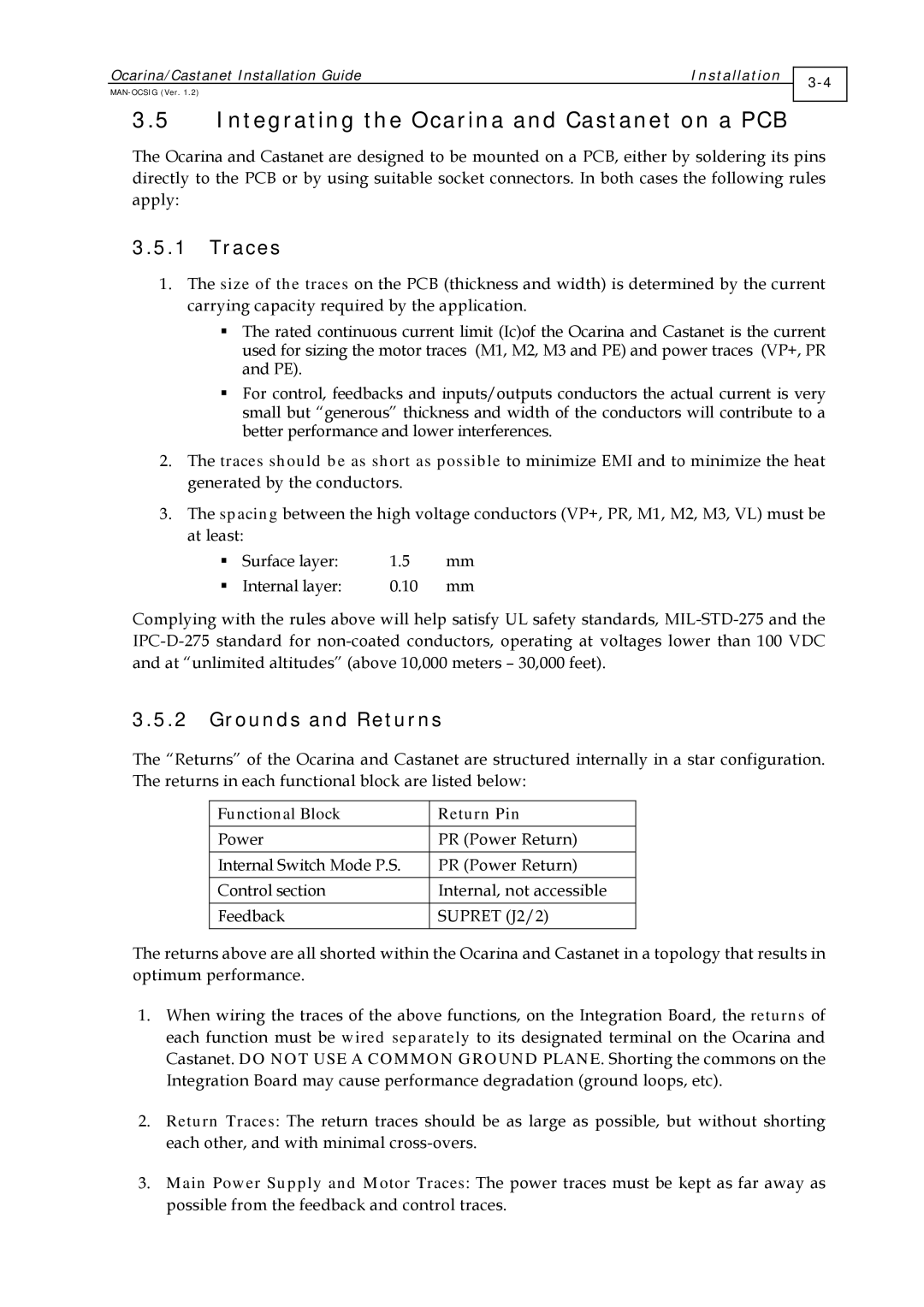Ocarina/Castanet Installation Guide | Installation |
| |
|
|
3.5Integrating the Ocarina and Castanet on a PCB
The Ocarina and Castanet are designed to be mounted on a PCB, either by soldering its pins directly to the PCB or by using suitable socket connectors. In both cases the following rules apply:
3.5.1Traces
1.The size of the traces on the PCB (thickness and width) is determined by the current carrying capacity required by the application.
The rated continuous current limit (Ic)of the Ocarina and Castanet is the current used for sizing the motor traces (M1, M2, M3 and PE) and power traces (VP+, PR and PE).
For control, feedbacks and inputs/outputs conductors the actual current is very small but “generous” thickness and width of the conductors will contribute to a better performance and lower interferences.
2.The traces should be as short as possible to minimize EMI and to minimize the heat generated by the conductors.
3.The spacing between the high voltage conductors (VP+, PR, M1, M2, M3, VL) must be at least:
Surface layer: | 1.5 | mm |
Internal layer: | 0.10 | mm |
Complying with the rules above will help satisfy UL safety standards,
3.5.2Grounds and Returns
The “Returns” of the Ocarina and Castanet are structured internally in a star configuration. The returns in each functional block are listed below:
Functional Block | Return Pin |
Power | PR (Power Return) |
|
|
Internal Switch Mode P.S. | PR (Power Return) |
|
|
Control section | Internal, not accessible |
|
|
Feedback | SUPRET (J2/2) |
|
|
The returns above are all shorted within the Ocarina and Castanet in a topology that results in optimum performance.
1.When wiring the traces of the above functions, on the Integration Board, the returns of each function must be wired separately to its designated terminal on the Ocarina and Castanet. DO NOT USE A COMMON GROUND PLANE. Shorting the commons on the Integration Board may cause performance degradation (ground loops, etc).
2.Return Traces: The return traces should be as large as possible, but without shorting each other, and with minimal
3.Main Power Supply and Motor Traces: The power traces must be kept as far away as possible from the feedback and control traces.
